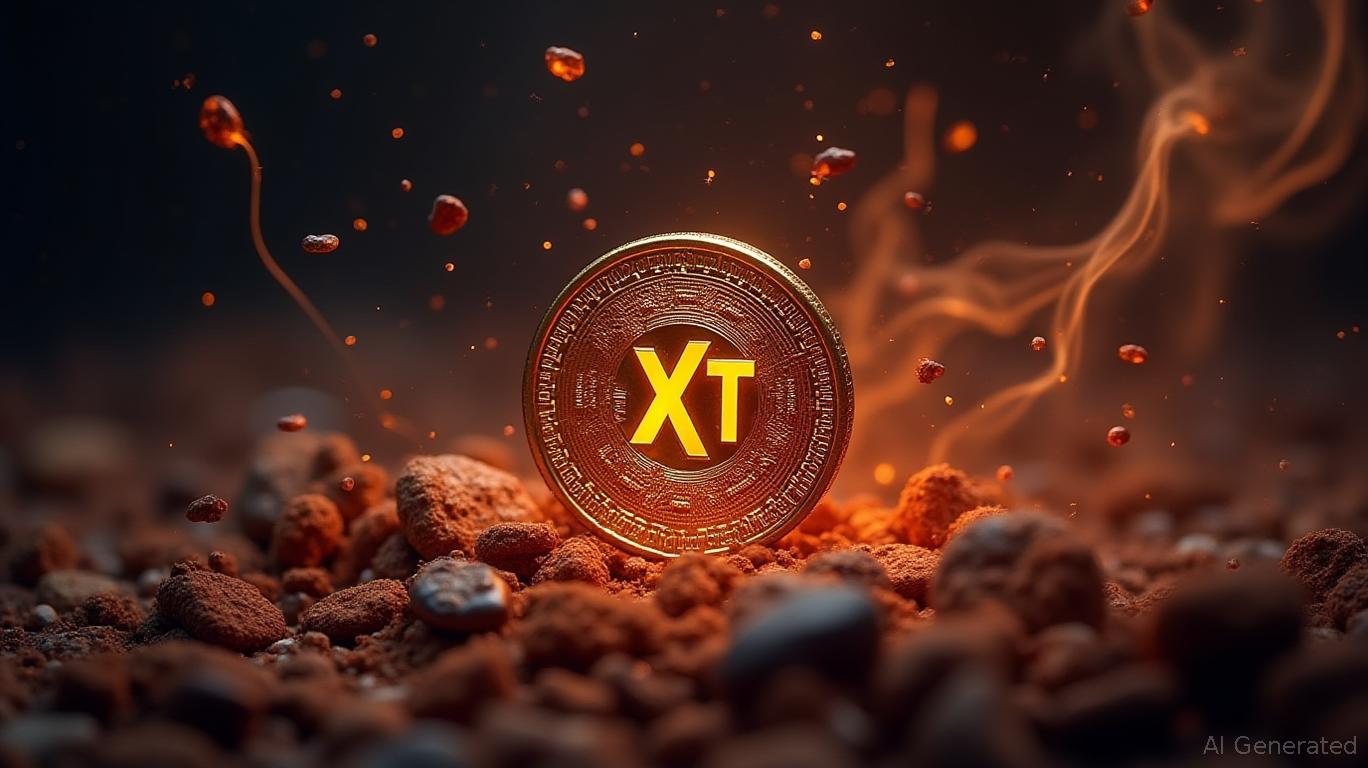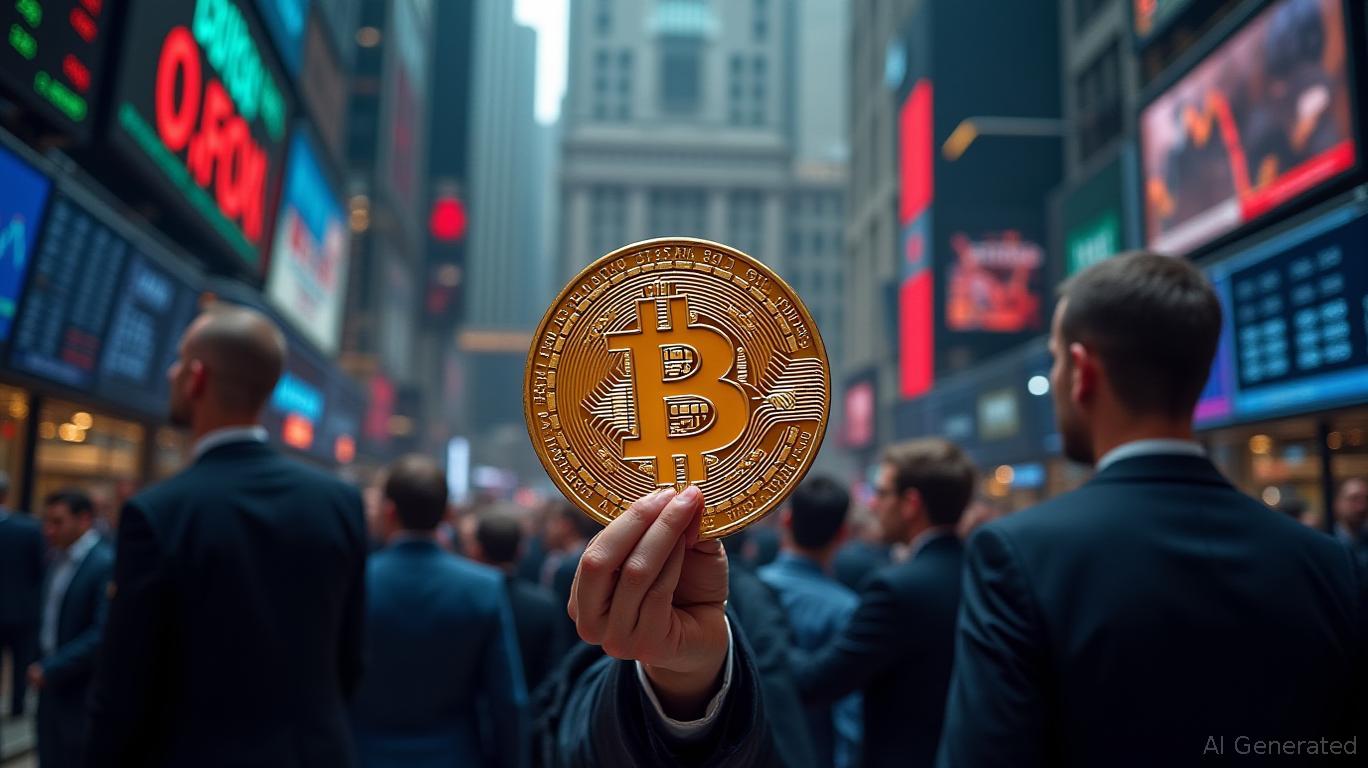SHIB's Legal Victory vs. Lack of Utility: The Meme Coin's Challenging Journey
- Shiba Inu (SHIB) joins FTSE Grayscale's crypto framework under "Consumer & Culture," aligning with SEC standards for ETP eligibility. - Despite regulatory validation, SHIB faces utility challenges: Shibarium's TVL remains below $1M, and its "meme coin" label deters institutional adoption. - Community resilience shows in record token burns, but analysts warn price targets depend on ecosystem growth, partnerships, and deflationary progress. - Market shifts toward AI/DePIN projects highlight SHIB's uphill b
Shiba Inu (SHIB) has recently gained renewed attention after being added to the FTSE Grayscale Crypto Sectors Framework, sparking fresh debates about whether the token could surpass the $0.0001 mark. This framework, a collaboration between Grayscale Investments and FTSE Russell, organizes digital currencies into five distinct sectors, with
This development holds weight for SHIB investors, as the framework is consistent with the U.S. Securities and Exchange Commission’s (SEC) Generic Listing Standards (GLS). These standards enable exchanges to list crypto ETPs (exchange-traded products) without requiring separate SEC approval for each asset. Under these guidelines, SHIB is one of 11 cryptocurrencies that qualify for spot ETPs, provided certain requirements are met. Grayscale’s findings point to SHIB’s inclusion as evidence of its enduring vision and robust structure.

Nevertheless, experts warn that SHIB’s journey toward significant price gains is still filled with obstacles. A recent review of the token’s ecosystem points to a major lack of utility, especially within its layer-2 network, Shibarium. Since early October 2025, Shibarium’s Total Value Locked (TVL) has stayed below $1 million, which is far below its potential and signals limited user engagement, according to a
These foundational problems are intensified by broader trends in the market. Investment is increasingly moving toward sectors like AI computing and DePIN (Decentralized Physical Infrastructure Networks), which provide practical uses and revenue streams, the analysis observes. Meanwhile, SHIB’s reputation as a “meme coin” remains, discouraging institutional investors and developers who are looking for projects with clear, real-world applications. The lack of significant activity on Shibarium further reinforces this view, with analysts noting that the network has yet to carve out a distinctive value proposition compared to other established Layer-2 solutions.
Despite these challenges, the SHIB community has shown signs of determination. A recent spike in token burns—soaring by more than 42,000% in just 24 hours—briefly pushed the token’s price up to $0.00001062, according to the Yahoo analysis. SHIB is also facing competition from new
SHIB’s future success will depend on its ability to prove real-world utility and draw liquidity to Shibarium. While community-driven efforts are valuable, they must be supported by strategic alliances and incentives for developers to encourage broader adoption. For SHIB to evolve from a speculative token into a core part of Web3 infrastructure, its team must focus on building the ecosystem rather than chasing short-term price gains, the analysis suggests.
As the digital asset market continues to shift, SHIB’s addition to the FTSE Grayscale framework provides some optimism. However, the ongoing structural hurdles make it clear that achieving major price milestones will require more than regulatory acknowledgment—it will take a substantial increase in utility and user adoption.
Disclaimer: The content of this article solely reflects the author's opinion and does not represent the platform in any capacity. This article is not intended to serve as a reference for making investment decisions.
You may also like
Bitcoin News Update: Crypto Shares Tumble Amid Liquidations, Security Breaches, and Federal Reserve Ambiguity Causing Market-Wide Upheaval
- U.S. crypto stocks plummeted pre-market on Nov 4, with MSTR (-3.30%), COIN (-3.12%), and BMNR (-4.90%) leading declines amid sector-wide volatility. - A $1.2B crypto liquidation event followed BTC/ETH's 3% hourly drop, triggering leveraged long position collapses and exposing sector liquidity risks. - DeFi protocol Moonwell suffered a $1M exploit via faulty oracle data, compounding recent vulnerabilities and prompting calls for multi-source price verification. - Fed's $125B liquidity injection fueled 67.

XTTA's Deflationary Drive: Token Burns Powering Expansion in Mining
- XTTA, Owlverse's native token, burned 50M tokens (12.5% of supply) to boost scarcity and value via deflationary strategy. - The "mining-driven + deflation" model aims to strengthen competitiveness in DePIN and smart finance sectors. - Future plans include surpassing 50% supply burns, contrasting traditional inflationary models to create upward price pressure. - Token burns align with crypto trends combating dilution, while real-world AI/infrastructure use cases enhance adoption potential. - Despite marke

Bitcoin Updates: Bitcoin's Sharp Drop and Federal Reserve's Quiet Easing Fuel Optimism for a Bull Market
- VIX fear index surged to 19.61 as Bitcoin fell below $108,000 amid corporate earnings uncertainty and Fed policy ambiguity. - BitMEX's Arthur Hayes warned U.S. Treasury and Fed's "Stealth QE" liquidity injections could reignite Bitcoin's bull market. - Meta's $118B AI spending triggered 11% stock drop, erasing $29.2B from Zuckerberg's wealth amid margin concerns. - Fed's $50B SRF liquidity spike highlighted market fragility, with Bitcoin's technical indicators showing bearish momentum below $106,453. - H

Smartphones Become Essential: M-KOPA Reaches 1 Million Users in Uganda, Tackling Financial Barriers
- M-KOPA reaches 1 million Ugandan customers via 7,484 DSRs, expanding digital inclusion through pay-as-you-go smartphones and loans. - The platform's "More than a Phone" initiative bundles financial tools, targeting 173,000+ users with loans, insurance, and mobile data in rural/urban areas. - With 83% of Ugandan DSRs under 35, M-KOPA aims to scale to 10 million smartphones by 2027, positioning devices as lifelines against financial exclusion across five African nations.
